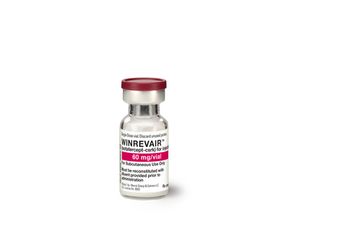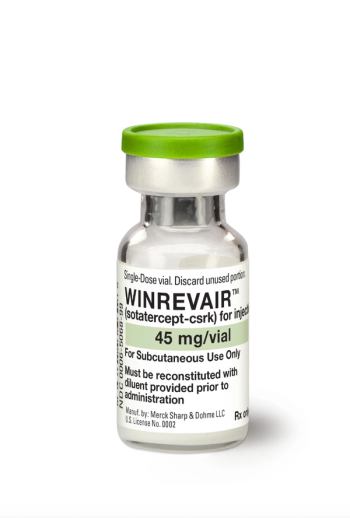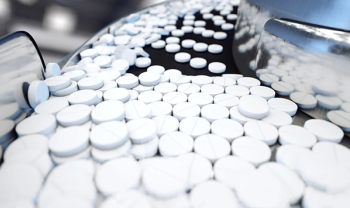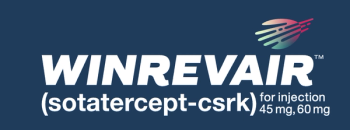
The HYPERION study was evaluating Winrevair in recently diagnosed adults with pulmonary arterial hypertension.

The HYPERION study was evaluating Winrevair in recently diagnosed adults with pulmonary arterial hypertension.

The move means the pulmonary arterial hypertension drug is now available in the United States, Europe, and the United Kingdom.

A pooled analysis of two prior trials suggests patients with a variety of cardiac index scores saw improvement when Winrevair was added to background therapy.

All participants will now have access to the drug through an open-label extension study.

Vitamin D receptor has antiproliferative effects in pulmonary arterial hypertension, but receptor expression is downregulated in the pulmonary artery smooth muscle cells of patients.

New data suggests clinicians may be slower to recognize sepsis in people with pulmonary arterial hypertension.

Patients with pulmonary arterial hypertension often experienced delays in obtaining a correct diagnosis.

Most patients did not receive combination therapy for pulmonary arterial hypertension (PAH) even when guidelines recommended it.

New real-world data suggest that physicians are cautious about prescribing the prostacyclin-receptor agonist Uptravi (selexipag) to pulmonary arterial hypertension (PAH) patients with mental health conditions when evidence suggests that it is best to take a proactive approach to treating PAH.

The results come from a phase IIa safety and tolerability study. The drug’s developers say they are working with regulatory authorities in hopes of launching a pivotal trial.

Preclinical data had suggested reducing serotonin might improve symptoms of pulmonary arterial hypertension, but new phase 2b data suggest the opposite.

New anecdotal evidence suggests some chemoimmunotherapy treatments may improve pulmonary arterial hypertension symptoms, but the overall evidence remains murky.

Investigators say more research is warranted to optimize management of patients with pulmonary arterial hypertension (PAH) who become pregnant.

The approval comes five months after the FDA approved Winrevair.

Recent research affirms the apparent utility of deep learning to build early detection models for pulmonary arterial hypertension.

Evidence suggests resistin is high in serum samples of people with severe pulmonary arterial hypertension; reducing it may reduce disease severity.

The committee in charge of reviewing medications for the European Medicines Agency has issued a positive recommendation for the single-tablet combination therapy of macitentan and tadalafil.

Patients with pulmonary arterial hypertension and cardiopulmonary comorbidities are typically started on monotherapy, but new data suggest some patients would do well with initial combination therapy.

A European committee has recommended sotatercept (Winrevair) be approved for certain patients with pulmonary arterial hypertension. A final decision is expected sometime this quarter.

By creating digital models based on individual patients, clinicians might one day be better able to personalize care.

A new report finds commercial insurers are adding more restrictions on therapies for pulmonary arterial hypertension.

Investigators are considering how best to interpret the results of potential new therapies.

A new report aims to create consistency out of a number of observations about associations between echocardiographic values by analyzing them in the context of real-world patient outcomes.

On the heels of Winrevair's approval, Gossamer Bio and the Chiesi Group struck a deal to develop seralutinib.

Preliminary data suggest people with Group 1 pulmonary hypertension had improved outcomes if they had ever received hormone replacement therapy.